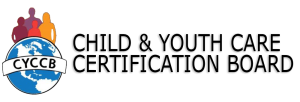IV. Relationship & Communication
Practitioners recognize the critical importance of relationships and communication in the practice of quality child and youth care. Ideally, the service provider and client work in a collaborative manner to achieve growth and change. ‘Quality first’ practitioners develop genuine relationships based on empathy and positive regard. They are skilled at clear communication, both with clients and with other professionals. Observations and records are objective and respectful of their clients. Relationship and communication are considered in the context of the immediate environment and its conditions; the policy and legislative environment; and the historical and cultural environment of the child, youth or family with which the practitioner interacts.
A. Foundational Knowledge
- Characteristics of helping relationships
- Characteristics of healthy interpersonal relationships
- Cultural differences in communication styles
- Developmental differences in communication
- Communication theory (verbal & non-verbal)
- Group dynamics & teamwork theory
- Family dynamics & communication patterns (including attachment theory as it relates to communication style)
B. Professional Competencies
- Interpersonal Communication
- adjust for the effects of age, cultural and human diversity, background, experience, and development of verbal and non-verbal communication
- demonstrate a variety of effective verbal and non-verbal communications skills including
- use of silence
- appropriate non-verbal communication
- active listening
- empathy and reflection of feelings
- questioning skills
- use of door openers to invite communication, and paraphrasing and summarization to promote clear communication
- awareness and avoidance of communication roadblocks
- recognize when a person may be experiencing problems in communication due to individual or cultural and human diversity history, and help clarify the meaning of that communication and to resolve misunderstandings
- assist clients (to a level consistent with their development, abilities and receptiveness) to receive relevant information about legislation/regulations, policies/standards, and supports pertinent to the focus of service
- provide for the participation of children/youth and families in the planning, implementation and evaluation of service impacting them
- set appropriate boundaries and limits on the behavior using clear and respectful communication
- verbally and non-verbally de-escalate crisis situations in a manner that protects dignity and integrity
- Relationship Development
- assess the quality of relationships in an ongoing process of self reflection about the impact of the self in relationship in order to maintain a full presence and an involved, strong, and healthy relationship
- form relationships through contact, communication, appreciation, shared interests, attentiveness, mutual respect, and empathy
- demonstrate the personal characteristics that foster and support relationship development
- ensure that, from the beginning of the relationship, applicable procedures regarding confidentiality, consent for release of information, and record keeping are explained and clearly understood by the parent/caregiver and by the child, as appropriate to developmental age. Follow those procedures in a caring and respectful manner
- develop relationships with children, youth and families that are caring, purposeful, goal-directed and rehabilitative in nature; limiting these relationships to the delivery of specific services
- set, maintain, and communicate appropriate personal and professional boundaries
- assist clients to identify personal issues and make choices about the delivery of service
- model appropriate interpersonal interactions while handling the activities and situation of the life-space
- use structure, routines, and activities to promote effective relationships
- encourage children, youth and families to contribute to programs, services, and support movements that affect their lives by sharing authority and responsibility
- develop and communicate an informed understanding of social trends, social change and social institutions. Demonstrate an understanding of how social issues affect relationships between individuals, groups, and societies
- identify community standards and expectations for behavior that enable children, youth and families to maintain existing relationships in the community
- Family Communication
- identify relevant systems/components and describe the relationships, rules and roles in the child/youth’s social systems and develop connections among the people in various social systems
- recognize the influence of the child’s relationship history and help the child develop productive ways of relating to family and peers
- encourage children and families to share folklore and traditions related to family and cultural background. Employ strategies to connect children to their life history and relationships
- support parents to develop skills and attitudes which will help them to experience positive and healthy relationships with their children/youth
- Teamwork and Professional Communication Skills
- establish and maintain effective relationships within a team environment by: promoting and maintaining professional conduct; negotiating and resolving conflict; acknowledging individual differences; and, supporting team members
- explain and maintain appropriate boundaries with professional colleagues
- assume responsibility for collective duties and decisions including responding to team member feedback
- use appropriate professional language in communication with other team members, consult with other team members to reach consensus on major decisions regarding services for children and youth and families
- build cohesion among team members through active participation in team building initiatives
- collect, analyze and present information in written and oral form by selecting and recording information according to identified needs, agency policies and guidelines. Accurately record relevant interactions and issues in the relationship
- plan, organize, and evaluate interpersonal communications according to the identified need, context, goal of communication, laws/regulations, and ethics and involved. Choose an appropriate format, material, language, and style suitable to the audience
- acknowledge and respect other disciplines in program planning, communication and report writing using multidisciplinary and interdisciplinary perspectives. Communicate the expertise of the profession to the team
- establish and maintain a connection, alliance, or association with other service providers for the exchange of information and to enhance the quality of service
- deliver effective oral and written presentations to a professional audience
- demonstrate proficiency in using information technology for communication, information access, and decision-making
